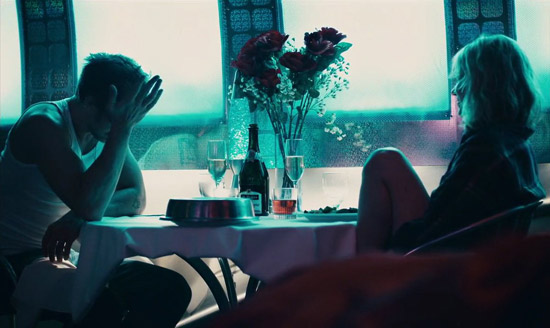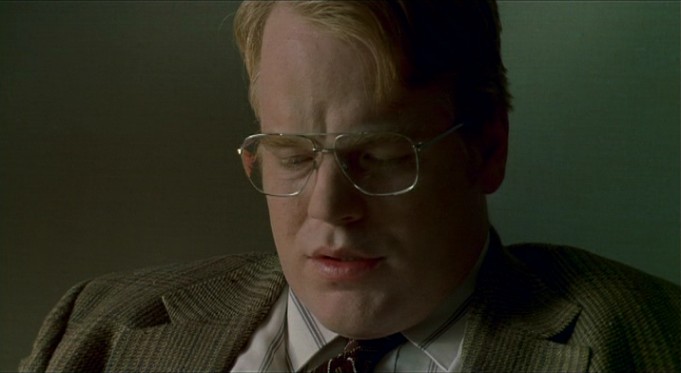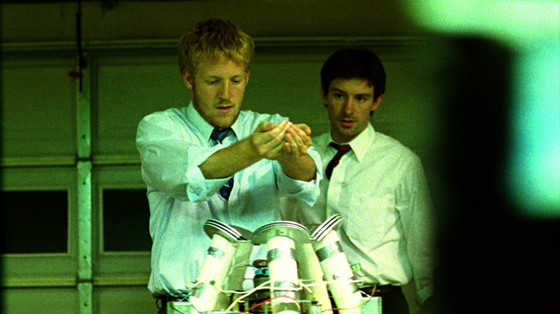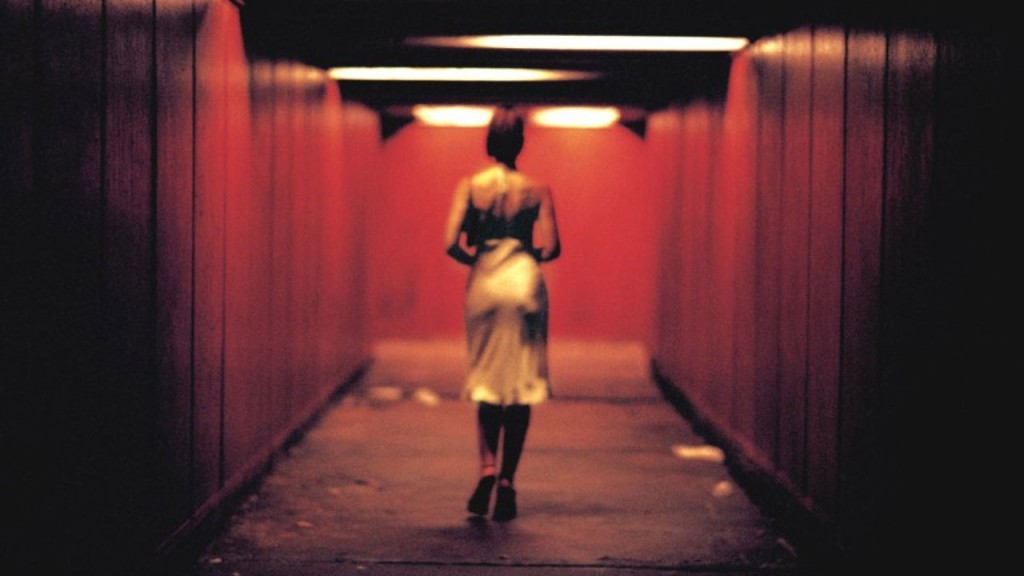
Taking a date to a movie can ultimately be a dicey proposition. Big fan of goofball comedies? Well obviously you lack intellectual depth. Proponent of sappy romances that always end happily ever after? In this case you most likely have a massive stuffed animal collection and wedding wish-box based on your Pinterest feed.
Using this logic, what might the following films say about you to a prospective paramour? That you enjoy genital torture and deviant sexual behavior? That you are emotionally stunted and become disillusioned with romantic relationships almost immediately? That you are an awkward and potentially dangerous loner? Maybe just stick to a Pixar tearjerker and keep your horrifying demons under wraps until the ink has dried on your marriage certificate.
1. Last Tango in Paris

At some point in history, Marlon Brando was a verified sex symbol. By the time Bernardo Bertolucci cast him in Last Tango in Paris, his sex appeal was severely on the wane, and the once impressive star was making his way towards the bizarrely behaving and dangerously overweight Brando audiences were treated to later in life.
Unlike other lusty films featuring white hot affairs, Last Tango in Paris leaves you with a sort of discomforting feeling. In fact, co-star Maria Schneider complained that she felt abused by both Bertolucci as well as Brando.
This is particular true for the infamous butter sodomy scene; the actress alleged the scene was thrust upon her unexpectedly, and although it was staged she felt “raped” by what occurred. Whether this was hyperbole or genuine, one can’t deny a sleazy feeling permeates the film from start to finish.
While romance can be subjective, most people would be hard pressed to find it in Last Tango in Paris. It almost has more in common with a film like The Exorcist or some other 70s horror classic. Brando is more like a rampaging movie monster than a romantic lead, and by the time he is dispatched by his tortured lover you can’t help but feel a sense of relief.
2. Happiness

Director Todd Solondz is downright giddy in his portrayal of life’s most agonizing moments, whether they entail an awkward, alienated pre-teen or a father’s admission to his son that he is actually a child molester.
This giddiness has never been more evident than in Solondz’s film Happiness, which centers on three sisters and their inability to find satisfaction in their love lives. Despite the dour content, the film is aggressively upbeat, with each character choosing to take a pathologically optimistic perspective in the face of humiliations and tragedies galore.
Well-adjusted characters do not exist in the Solondz universe. The oldest of the three sisters is the only one who seems to have life under control on the surface, only to find out her husband is a pedophile and actively in pursuit of friends of their young son.
Never before (or again) has pedophilia been played for laughs, and you truly feel ashamed of yourself for finding such a disturbing topic even mildly amusing. Happiness is an emotional snuff film, anyone cringe-averse should probably seek shelter.
3. Antichrist

Troubled marriages feature in many films, as does what happens to two people after the death of child. True to form, Lars von Trier’s Antichrist takes these dour subjects and makes them even more grim thanks to one unhinged lady and her cold psychiatrist husband.
Intending to soothe his grieving wife after the loss of their child, He (Willem Dafoe) takes She (Charlotte Gainsbourg) to a secluded cabin for some much-needed healing. However, He is thwarted by She’s increasingly manic state, which culminates in vengeful sex and genital torture.
Genuine, heartfelt love is rarely thing in von Trier’s films. Rather, the audience is usually treated to the pained relations between men and women with varying degrees of violence. There is deceit, mistrust, resentment, and guilt, all of which feature greatly in Antichrist. He is patently uncaring to his wife’s condition, while She gives into primal desires that go well beyond the acceptable expressions of grief.
After smashing He’s testicles with a wood block, She undertakes some brutal copulation which culminates in his ejaculating blood. Later She decides she’s had about enough of her own sexual response, so she performs a home clitorectomy with a pair of scissors.
In a world where filmmakers (particular in the horror genre) ritually attempt to up the ante, Antichrist remains a jaw-dropping example of film violence. While it’s not necessarily sensationalistic and is most definitely beautifully rendered, most would be hard-pressed to name a more disturbing film.
4. Primer

Primer is not anti-romantic due to violence or strained relationships. Instead, Shane Carruth’s micro-budget time travel film makes for a bad date night selection because of its almost robotic focus on the science behind making a functional time machine.
Other films featuring the same topic usually concentrate on the personal ramifications of time travel (such as the inexplicable Time Traveler’s Wife, Time After Time, etc.) Conversely, Primer employs a laser-like focus on the creation of the time machine and tangled timelines that become more muddled as the film goes on.
The plot is so hard to follow it had to be supplemented with info-graphics explaining the many ins and outs of using the time traveling device. The performances are also relatively impersonal; in many cases you feel as though you are sitting in on an engineering club game night.
While this definitely works within the confines of the film, it certainly does not promote an amorous feeling between couples. In fact, the sheer concentration it takes to watch Primer will most likely induce headaches for all involved.
5. Irreversible

Irreversible, Gaspar Noe’s 2002 film and most famous New French Extremity offering, is notorious for one harrowing scene particular, where Alex (played by Monica Bellucci, arguably France’s most well-known and beloved actress at the time) is brutally raped for an interminable period. While this is the scene that is most often discussed by fans and foes of this astounding film, it is merely one disturbing instance of many.
This is a movie that opens with a disgusting old man (played by French horror stalwart Philipe Nahon) waxing nostalgic about molesting his young daughter, which leads to a sequence in which the main characters must navigate perhaps the most sadistic sex club ever put to film.
Forget the comparably quaint depictions of the S&M adventures portrayed in films like Cruising or Secretary. This is full-on, unbridled slapping skin and moans, all to the horror of Marcus (Vincent Cassel) who appears to be on some kind of relentless mission to find a person known only as La Tenia (or The Tapeworm).
After delicate questioning of one particularly lively patron, he seemingly finds the La Tenia and is quickly beat down and almost raped. He is subsequently saved by Pierre (Albert Dupontel), who repays the assailant with repeated blows to the face via a fire extinguisher. These events all occur within the first 20 minutes of the film.
Although it’s abundantly clear that Irreversible is in no way a font of romance, its unique structure does allow for some profound moments of intimacy. Because the film plays out in reverse, it ends on the doomed couple preparing for their night out. While real-life couples are rarely able to transfer their chemistry to the screen, what transpires between Cassel and Bellucci early (or late) in the film is truly breathtaking.
It also makes the preceding violence that much more tragic, and perfectly underscores the film’s central theme “Time destroys everything”.